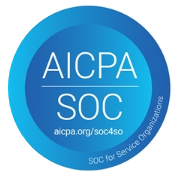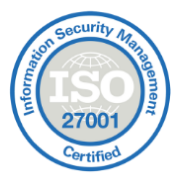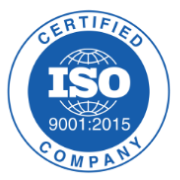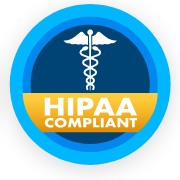In today’s fast-paced healthcare industry, effective employee training and communication are critical to ensuring patient safety, regulatory compliance, and operational efficiency. However, many healthcare organizations struggle with outdated training methods, fragmented communication channels, and the challenge of delivering consistent training across global teams. This is where Paradiso LMS, a leading Healthcare LMS, stepped in to revolutionize employee training and communication for a top-tier healthcare organization.
This blog explores how Paradiso LMS transformed the training landscape for this healthcare giant, addressing key challenges and delivering measurable results. Whether you’re searching for the Best LMS for employee training or exploring solutions for global training, this case study offers valuable insights.
Why Is Employee Training Crucial for Healthcare Organizations?
Healthcare organizations operate in a highly regulated environment where even minor errors can have life-altering consequences. Effective employee training ensures that staff are well-versed in medical protocols, compliance requirements, and the latest industry advancements. However, traditional training methods often fall short due to:
- Inconsistent Training Delivery: Disparate systems lead to uneven knowledge dissemination.
- Poor Communication: Lack of centralized platforms hampers collaboration.
- Scalability Issues: Growing organizations struggle to train global teams efficiently.
This is where a robust Healthcare LMS like Paradiso LMS comes into play, offering a unified platform for training and communication.
How Did Paradiso LMS Address These Challenges?
1. Centralized Training for Global Teams
One of the biggest challenges for the healthcare organization was delivering consistent training across its global workforce. Paradiso LMS provided a centralized platform where employees from different regions could access the same training materials, ensuring uniformity in knowledge and skills.
- Global Training Made Easy: The platform supports multiple languages and time zones, making it ideal for international teams.
- Customizable Content: The organization could tailor training modules to meet specific regional compliance requirements.
2. Enhanced Communication and Collaboration
Effective communication is the backbone of any healthcare organization. Paradiso LMS integrated communication tools like chat, forums, and video conferencing, enabling seamless collaboration among teams.
- Real-Time Updates: Staff could receive instant updates on policy changes or emergency protocols.
- Peer Learning: Employees could share insights and best practices through discussion forums.
3. Gamification and Engagement
To combat low engagement rates in traditional training programs, Paradiso LMS introduced gamification features like badges, leaderboards, and quizzes.
- Increased Participation: Gamified elements made training more interactive and enjoyable.
- Better Retention: Employees retained information more effectively through engaging formats.
4. Analytics and Reporting
The healthcare organization needed a way to track training progress and identify gaps. Paradiso LMS offered advanced analytics and reporting tools.
- Real-Time Insights: Managers could monitor employee progress and intervene when necessary.
- Compliance Tracking: The platform ensured that all staff met regulatory training requirements.
What Were the Results of Implementing Paradiso LMS?
The impact of Paradiso LMS on the healthcare organization was transformative:
- 90% Improvement in Training Completion Rates: Employees were more engaged and completed training modules on time.
- 50% Reduction in Communication Gaps: Centralized communication tools streamlined information flow.
- 30% Increase in Compliance Adherence: Automated tracking ensured all staff met regulatory standards.
- Scalable Global Training: The organization successfully trained over 10,000 employees across 20+ countries.
FAQs: Answering Your Questions About Healthcare LMS
1. What is a Healthcare LMS?
A Healthcare LMS (Learning Management System) is a platform designed to deliver, track, and manage training programs for healthcare organizations. It ensures compliance, improves communication, and enhances employee skills.
2. Why is Paradiso LMS the Best LMS for Healthcare Organizations?
Paradiso LMS stands out due to its customizable features, global scalability, and robust communication tools. It addresses the unique challenges of healthcare training, making it the Best LMS for this sector.
3. How Does Paradiso LMS Support Global Training?
The platform supports multiple languages, time zones, and regional compliance requirements, making it ideal for organizations with international teams.
4. Can Paradiso LMS Improve Employee Engagement?
Yes, through gamification, interactive content, and real-time communication tools, Paradiso LMS significantly boosts employee engagement.
5. Is Paradiso LMS Suitable for Small Healthcare Organizations?
Absolutely! Paradiso LMS is scalable and can be tailored to meet the needs of organizations of all sizes.
Key Takeaways
- Centralized Training: Paradiso LMS provides a unified platform for consistent and scalable training.
- Enhanced Communication: Integrated tools improve collaboration and information flow.
- Engagement Through Gamification: Interactive features boost participation and knowledge retention.
- Compliance and Analytics: Automated tracking ensures regulatory adherence and provides actionable insights.
Ready to Transform Your Healthcare Organization’s Training?
If you’re looking for a solution to streamline employee training and communication, Paradiso LMS is the answer. With its proven track record in the healthcare sector, it’s no wonder it’s considered the Best LMS for global training.
Take the first step toward transforming your organization’s training programs. Explore Paradiso LMS today!
By leveraging Paradiso LMS, your healthcare organization can achieve higher engagement, better compliance, and seamless communication—ensuring your team is always prepared to deliver exceptional care.


















